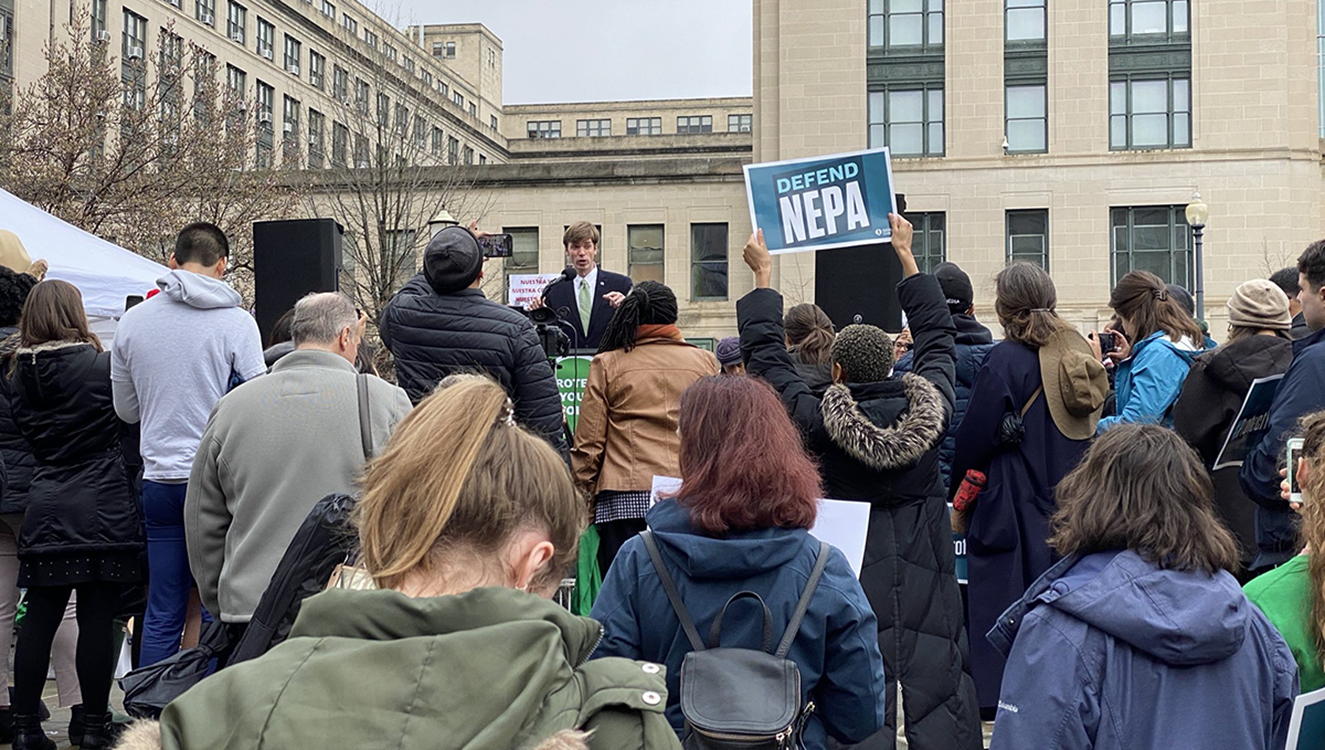At first, I was nervous to stand in front of the Council of Environmental Quality -- a division of the Executive Office of the President of the United States -- and speak my truth. However, even as I recognized those nerves, I knew that this just and good cause was and is so much greater than myself. I felt empowered to use the information that I have gained through my work with the Sierra Club, Earthjustice, academia, and beyond to speak knowledgeably about the ways in which NEPA protects the life outcomes of frontline communities.
My name is Faith Lewis. I am a Healthy Communities intern in the Environmental Justice and Community Partnerships Program in the Washington D.C. office. On February 25, 2020, I spoke at the Public Hearing on the Council on Environmental Quality's rollback of National Environmental Policy Act (NEPA) regulations at the Department of the Interior in Washington, D.C.
NEPA is a U.S. law that protects the environment and human health by requiring federal agencies to consider the environmental effects of major federal decisions on land management, construction, and permit applications. This groundbreaking law was passed unanimously in the Senate over 50 years ago. NEPA established the Council of Environmental Quality (CEQ) to ensure that federal agencies meet their obligations under this bedrock environmental law. However, the CEQ's proposed update to the NEPA rules would ultimately decrease the protective power of NEPA, such as by eliminating the requirement that all major federal projects analyze the cumulative environmental impacts of their actions.
I am grateful that I had the opportunity to tell the CEQ why NEPA remains of integral importance to the environment and public health, but I remain frustrated by the fact that the "powers-that-be" intentionally excluded (and continue to exclude) marginalized groups from meaningfully participating in these processes. For example, the CEQ released public tickets for the D.C. hearing (which was only the second of two, nationwide) less than two-and-a-half weeks before the hearing occurred. This late action precluded many underserved communities from participating in the hearing. Furthermore, the CEQ has denied numerous, repeated requests to extend the comment period beyond the original sixty-day allotment. This denial has meant that members of the public can no longer submit public comments to express our disagreement with the proposed changes to NEPA rules.
Yesterday, on March 10th, 2020, the comment period for the NEPA “update” ended. Although I am disheartened by this move by our government, I know that members of the environmental justice community will continue to do everything in our power to ensure that marginalized voices are heard.
